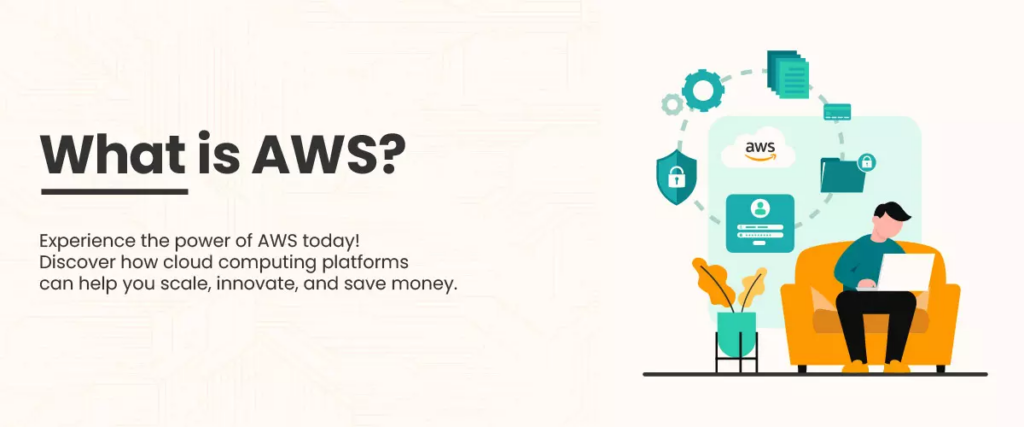Cloud services like Salesforce and AWS are becoming crucial for companies looking to remain competitive in today’s quickly changing IT market. However, as both are cloud-based platforms, the terms “Salesforce” and “AWS” may appear to be equivalent to novices. Are they identical, though? The answer is no, and in this blog, we’ll explore their distinctive features, special advantages, and how knowing these platforms may help you make more informed business decisions.
So, let’s explore Salesforce vs. AWS, break down key concepts, and get you excited about diving deeper into these game-changing technologies!
What is Salesforce?
Salesforce is fundamentally a platform for customer relationship management, or CRM. This indicates that it was developed to assist companies in improving sales, managing client relationships, and streamlining communication. Consider it a tool for tracking encounters, organizing customer data, and automating procedures to boost sales and overall customer happiness.
Here’s how Salesforce can make a difference:
- Sales & Marketing: Salesforce helps businesses track leads, manage sales opportunities, and run targeted marketing campaigns.
- Customer Service: It offers tools to handle customer support requests, ensuring issues are addressed quickly and efficiently.
- Analytics & Insights: With its robust reporting and analytics tools, businesses can gain valuable insights into customer behavior, sales performance, and more.
For companies focused on enhancing customer relationships and improving sales processes, Salesforce is a go-to solution.
What is AWS?

Amazon Web Services, on the other hand, is a full-featured cloud computing platform. AWS provides a vast array of cloud services, including as processing power, data storage, machine learning, and more, in contrast to Salesforce, which focuses only on customer management. In essence, AWS gives companies the infrastructure they want in order to effectively operate apps, store data, and grow their operations.
Key features of AWS include:
- Cloud Hosting: Businesses can host websites and applications on AWS, providing them with the flexibility to scale as needed.
- Storage Solutions: AWS offers secure, scalable storage options for companies dealing with large amounts of data.
- Machine Learning & AI: AWS allows businesses to integrate advanced technologies like AI and machine learning into their processes.
- Security & Compliance: AWS is known for its high level of security, making it a trusted choice for businesses concerned about data privacy.
In short, AWS is ideal for businesses looking to leverage cloud computing, infrastructure, and scalable solutions to run and grow their operations.
How Are Salesforce and AWS Different?
Now that we’ve covered the basics of each platform, let’s dive into the key differences:
1. Core Purpose
- Salesforce: Focuses primarily on customer relationship management and improving sales, marketing, and service.
- AWS: Provides a broad array of cloud computing services that support various business functions like hosting, storage, and machine learning.
2. Services Offered
- Salesforce: Offers CRM tools, marketing automation, analytics, and customer support features.
- AWS: Offers a wide variety of cloud services, including compute power (EC2), storage (S3), database management, and advanced services like AI, machine learning, and IoT.
3. Target Audience
- Salesforce: Primarily caters to businesses focused on improving customer relations and sales processes.
- AWS: Serves a broader audience, including companies looking for cloud infrastructure to support diverse functions and applications.
4. Integration
- Salesforce: Provides a unified solution that integrates with other Salesforce products and third-party applications to enhance CRM capabilities.
- AWS: Offers flexibility to integrate with various systems, databases, and applications across different industries and use cases.
When Should You Choose Salesforce Over AWS (or Vice Versa)?
Understanding when to choose Salesforce vs. AWS depends on your business needs. Here’s a quick guide:
- Choose Salesforce if your main goal is to manage customer relationships and improve sales and marketing efforts. It’s ideal for businesses focused on streamlining workflows, enhancing customer experiences, and increasing revenue.
- Choose AWS if you need cloud computing power, scalable infrastructure, or want to host applications, store data, or integrate advanced technologies like AI and machine learning. AWS is perfect for businesses needing a robust tech foundation to support a variety of functions.
Real-World Example:
- Salesforce in Action: A retail company uses Salesforce to track customer purchases, personalize marketing campaigns, and manage customer support tickets. By using Salesforce, the company improves customer satisfaction and drives sales growth.
- AWS in Action: A tech startup uses AWS to host its website, store user data securely, and run machine learning models for predictive analytics. AWS helps the startup scale its infrastructure and innovate with cutting-edge tech.
Why Understanding These Platforms Matters for Your Business
Knowing the distinctions between Salesforce and AWS will help you make better judgments regarding the adoption of technology, whether you’re an entrepreneur or an employee of a business. These platforms offer strong instruments for optimizing processes, boosting productivity, and spurring expansion as cloud-based solutions continue to influence the direction of company.
Gaining knowledge of Salesforce, AWS, and their distinctive products opens up a world of opportunities. You’ll be more capable of staying ahead of industry trends, boosting productivity, and helping your business succeed.
Conclusion
Although both AWS and Salesforce are strong platforms, their functions within the cloud ecosystem differ. You may choose the platform that best meets your company’s demands by being aware of its distinct features. Both platforms are really valuable whether you’re wanting to develop your infrastructure or concentrate on building relationships with customers.
Are you prepared to take advantage of cloud computing? Today, let’s begin our exploration!
you may be interested in this blog here:-
Don’t Fear the Update: Navigating the Challenges of how to implement sap note
Five Top Technology Investment Drivers for 2024
How many dollars worth of RSU does Salesforce typically offer an MTS (experienced hire) on joining?
Integration cloud system to HANA Cloud Platform using Cloud Connector




